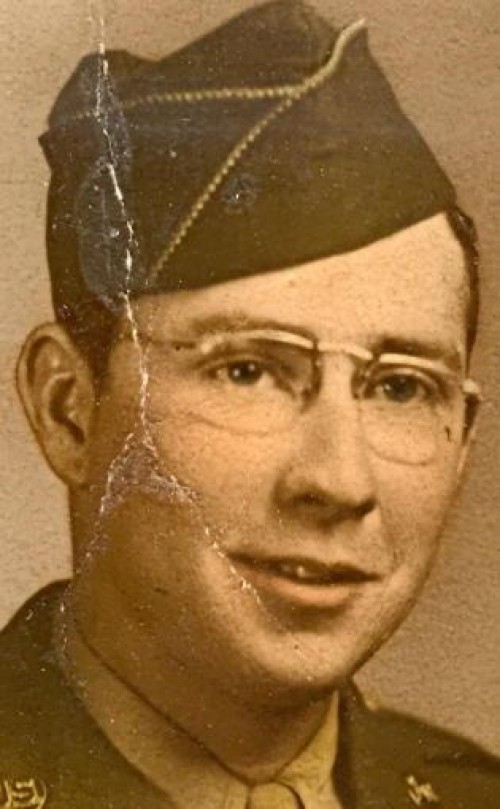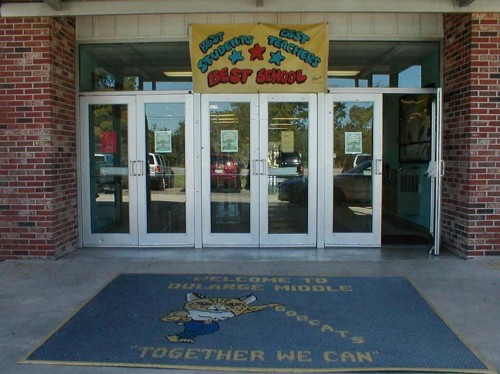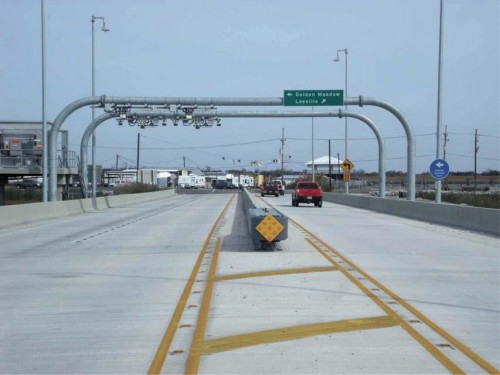
John Parr
February 18, 2011
Dularge Middle sets bar for educating the poor
February 22, 2011If you build it, will they come? If they come, will they pay?
On the night President Barack Obama delivered his State of the Union address, the Louisiana Department of Transportation and Development’s executive director of toll facilities faced the Lafourche Parish Council and outlined the State of the Leeville Bridge.
His message: the state department did not take in enough revenue in 2010 to afford debt service coverage requirements related to the bonds sold to finance the bridge.
David Miller, who oversees the Tomey J. Doucet Bridge in Leeville and the Crescent City Connection in New Orleans, told the council that while vehicular traffic crossing the bridge – especially trucks – has declined in the wake of the stagnant offshore drilling in the Gulf of Mexico, the amount of traffic that traveled over the bridge would have delivered enough money to enable the department to make the payment in full … if drivers had paid the tolls.
Miller said the state collected $3.4 million in toll revenue plus interest in 2010, which is just enough to pay the bond coverage requirement. But bond documents require an additional 20 percent to cover the annual lien service and that’s where the DOTD falls short.
Because the transportation department can’t meet the service requirement, a series of rectifying steps has begun, which could lead an earlier-than-expected increase in the toll charges. As of now, the escalation is scheduled to take place in 2013.
“I really don’t have any idea,” Miller told the Tri-Parish Times concerning the prospect of higher tolls. “I think we’ve got to see what the [independent consultant’s] report says. We’re going to do everything we can to be innovative in our approach to this so that doesn’t happen.
“We had to notify the [Louisiana Transit Authority], and that happened two weeks ago. LTA is the governing board over toll projects, and they had to make decisions first. The next thing we had to do, and it has been done, is notify our trustee, the Bank of New York Mellon. We had to engage a toll consultant within 30 days, and that is happening right now.”
Miller said the consultant will have 60 days to compile a recommendations report, and the LTA will have 60 days to act on the recommendations, a timeline tentatively scheduled to conclude by June.
The shortfall, $670,235, would have been avoided, Miller said, if not for a faulty toll collection system that has permitted unpaid trips to the lower reaches of La. Highway 1. He attributed the issues to out-of-state license plates, unreadable license plates, unpaid violations and an incomplete tolling system.
URS Corp. made the traffic forecasts prior to Hurricane Katrina in May of 2005. Automobile traffic fell 11 percent short of the projections in 2010, and truck traffic, the real revenue-producer, missed its mark by 55 percent.
Yet, DOTD only collected 71 percent of the revenue it should have based on the amount of traffic the toll gantry cameras recorded, the tolls director said.
“We’re in a lawsuit with the company that was designing [the toll system] and implementing it,” Miller said. “If we had collected 86 percent, I probably wouldn’t be standing here in front of you.”
Instead of stationing a man in a booth, the department opted to operate the toll system electronically in an effort to cut costs.
“The computer system bit us in the backside,” Councilman Joe Fertitta said.
Miller said the toll system would likely be outsourced. If that were to happen, the Crescent City Connection and LA-1 toll systems would be separate for the first time.
The New Orleans Time-Picayune reported last month that nearly $60,000 in attorney fees for work on the Leeville Bridge were improperly paid for with CCC toll revenue. Miller said this had no bearing on the issues at hand.
Through outsourcing the toll collection process, the LA-1 system would be fine-tuned to prevent the present-day deficiencies, including the out-of-state license plate problem and erroneous fine notices.
“Another very good valid reason for outsourcing this thing is because the toll system is not working,” Miller said. “It’s incomplete, so we have issues with it. A new, fully functional system will not have those problems. We just won’t allow it.”
Drivers are expected to stop at one of three stations leading up to the bridge and pay the toll – $2.50 for two-axle passenger vehicles and $7.50 for trucks. The payment, or lack thereof, is confirmed by photos of license plates taken by cameras that hang above the foot of the bridge. Violators are sent a notice of fine via mail.
Drivers who permanently reside south of the bridge pay a one-time $12.50 fee. Commuters who make at least 20 trips south in a 60-day period pay $1.50 per crossing. The toll schedule was set by the LTA and only charges drivers headed south.
As requested by the LTA, Miller said the state will file a claim with the Gulf Coast Claims Facility in hopes that BP, responsible for the fatal Deepwater Horizon explosion and subsequent oil spill last April, will recoup the state for the loss of funds contributable to the moratorium’s negative impact on truck traffic, specific numbers.
Henri Boulet, executive director of the LA-1 Coalition, said he has been attending LTA meetings to provide a voice for the community and encourages the pursuit of a claim against BP.
“Certainly, we have encouraged the state to look at the traffic patterns, both before and after the spill occurred to see if there is solid evidence to seek a claim for shortages related to the spill,” Boulet said. “We are encouraging them to move forward on that front.”
Lafourche Councilman Daniel Lorraine said DOTD should do everything in its power to hold BP accountable for the lack of traffic instead of raising the tolls and putting the onus on the citizens.
“This area, sir, the economy never went down until that BP explosion occurred and that moratorium hurt us real bad,” Lorraine said. “I’m not for putting them tolls on the people … If y’all think y’all are going to go up on the tolls, that would be a sad day in Lafourche.”
Boulet did not say if the controversy surrounding the Leeville Bridge would have a negative impact on the coalition’s efforts to secure funds for phase two of the LA-1 construction project, but instead is monitoring the state’s ability, or inability, to collect 100 percent of the tolls.
“The LA-1 Coalition is going to continue to focus its efforts on amassing the needed construction funds for phase two,” Boulet said. “We are monitoring what we feel are the state’s appropriate actions to ensure that the toll system begins collected all of the revenues it should.
“I think all of the actions taken by the state thus far, they are the proper procedures that they are following as it relates to the bond indebtedness documents.”
Department of Transportation and Development Executive Director David Miller told the Lafourche Parish Council three weeks ago that the toll revenue from the Leeville Bridge is not enough money to make the bond payments. COURTESY PHOTO












